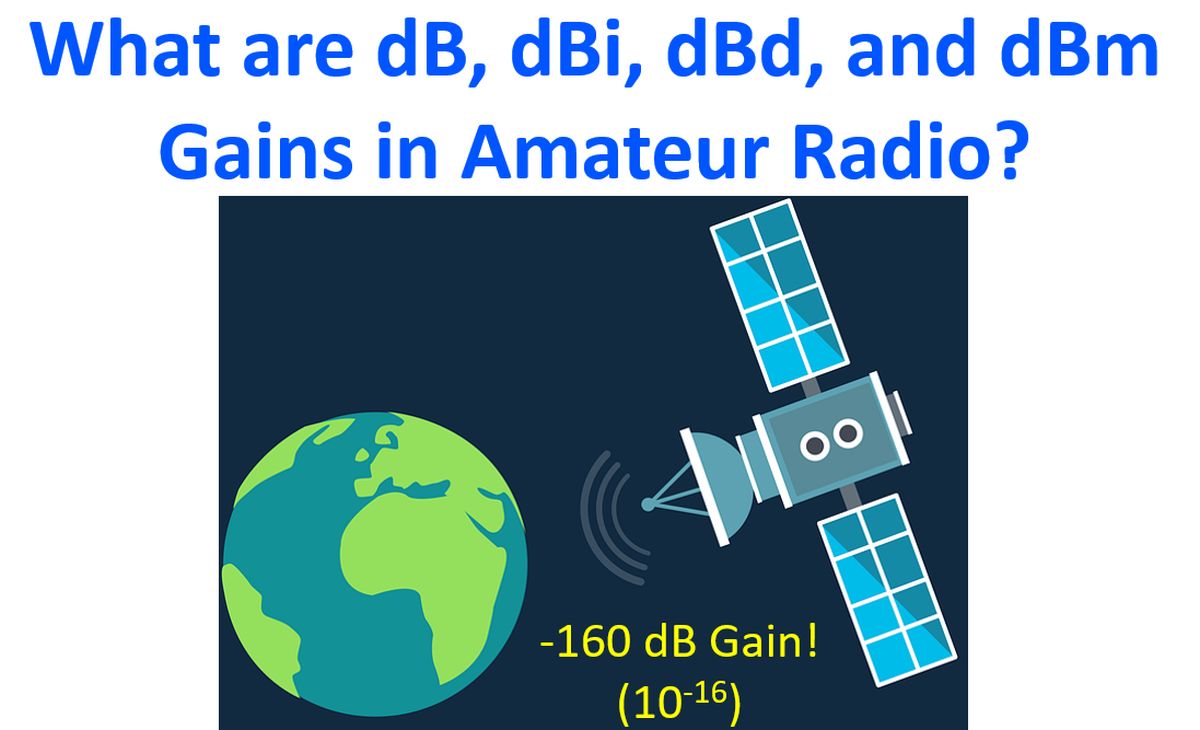What are dB, dBi, dBd, and dBm Gains in Amateur Radio?
What are dB, dBi, dBd, and dBm Gains in Amateur Radio?
Decibel is a unit which most of us are familiar in case of intensity of sound. It is a logarithmic unit which can be applied to other quantities which can vary greatly so that mentioning the actual change would mean a large number or decimal fraction. A gain of 2 will be equivalent to 3 dB gain. Change in any linear quantity P can be transformed to decibels using the formula: Pdb = 10 x log10 P. While a gain of 10 dB would mean a gain of 10, a gain of 20 dB would mean a gain of 100 (102) as it is a logarithmic scale. A loss in signal strength from a satellite to earth station of 1016 can be conveniently expressed as a -160dB gain.

As it is a relative unit, while mentioning dB, the standard to which it is compared has to be known. In case of antenna gain, it is often mentioned as dBi or gain with respect to an isotropic antenna. Isotropic antenna is a theoretical antenna which radiates uniformly in all directions in a spherical form. Dipole antenna has a radiation pattern perpendicular to the radiating element, that is a horizontal dipole will have a horizontally polarized radiation with a null in the direction of the ends of the dipole. Hence the dipole also has a gain of 2.15 dBi, in comparison with an isotropic antenna, as it has some directivity. When the gain of an antenna is compared to that of a dipole, it is designated as dBd. Gain mentioned in dBd will be 2.15 lower in magnitude compared to a gain expressed in dBi.
Now what is dBm? Decibels relative to a milliWatt is mentioned as dBm. One Watt would be 103 mW and hence expressed as 30 dBm. In a related context, milliwatting is operating with power less than a Watt. In milliwatting, a power of 20 dBm would mean 100 mW. International WSPR Beacon Project works at 200 mW and will be expressed as 23 dBm. WSPR station of 10 mW has been received at 1100 km on 7 MHz. That would be a power of 10 dBm. WSPR is pronounced as “Whisper”, stands for Weak Signal Propagation Reporter software for weak signal communication by radio amateurs, initially written by Joe Taylor, K1JT.